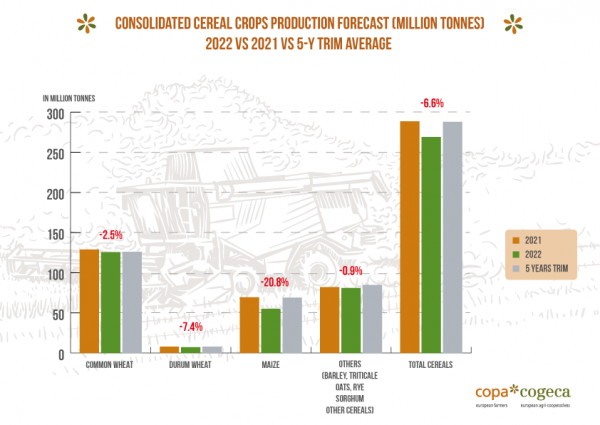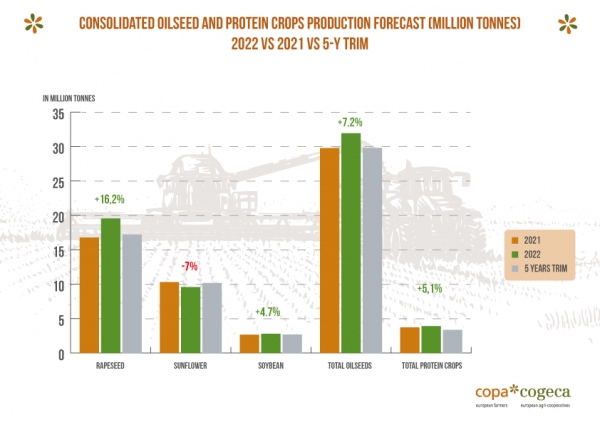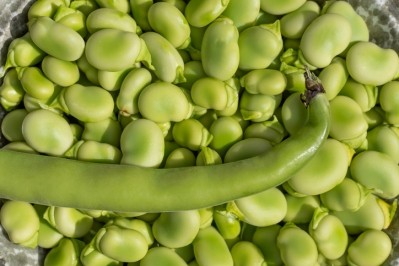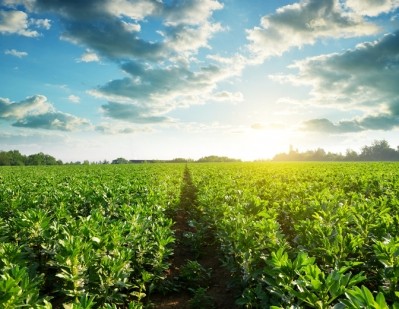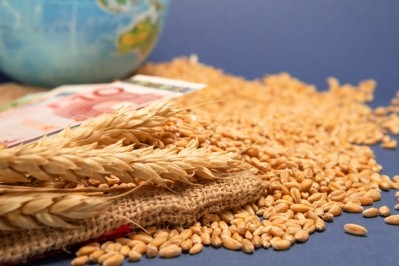New Copa and Cogeca figures confirm a recovery in EU-27 oilseeds and protein crops
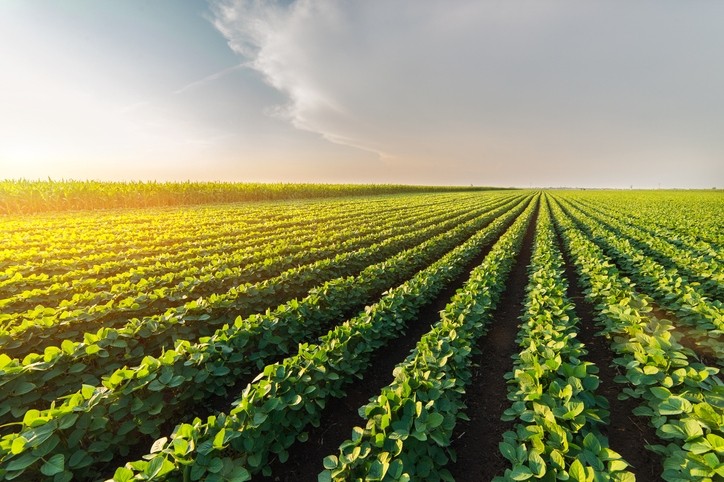
That is quite a significant decline, they said.
Looking at the data for the oilseed and protein crops, the situation is more positive, according to those experts. They expect the tonnage in those to be above the annual average output of the past five years, as forecast in July.
Oilseed crops are forecast to reach 31.9m tons, which is a 6.7% increase on last year and protein crops are set to hit 3.92m tons, up 5.1% on 2021.
Corn output
The summer drought had a particularly severe impact on the harvest of corn (maize), according to the report. Production stands at 55m tons, down by 20% year-on-year.
Common wheat production is also set to see a decline of 2.5%, to reach 125.6m tons.
However, the working group expects the production of barley to remain stable, with a harvest of 51m tons.
Rapeseed rebounds
Oilseed rape production recovered, with output at 19.5m tons. The Copa-Cogeca team said the positive result for that crop was due to an increase in the area cultivated but also good yields.
Even though the area under cultivation for sunflower was at a record level in the EU-27 in 2022, production only reached 9.6m tons, 7% lower than last year.
EU soybean production should remain stable as lower yield was compensated by additional planted hectares (+17.4%), continued the working group.
The EU-27 production of protein crops such as fava beans increased by 5% due to good harvests in the Scandinavian and Baltic states, they added.
Fertilizer prices
Meanwhile, Copa and Cogeca is urging the EU Commission to continue to act to make the fertilizer market more transparent, to limit price increases and to guarantee a supply for the next cropping season, citing a challenging market for farmers given the ongoing volatility in prices, inflation, the euro-dollar parity and the increase in input costs such as fertilizers.
